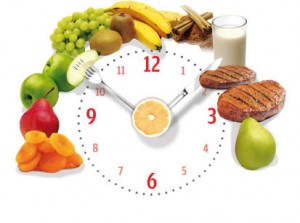A “healthy diet” consists of smart choices that will help to make your lifestyle a healthier one. These choices can include numerous different variables from reducing saturated fat and lowering cholesterol to eating less fast food and drinking more water. It’s important to note, a healthy diet isn’t a temporary program to reach a short-term goal, it’s a lifelong commitment to staying healthy through creating clean and smart eating habits.
The Benefits of Eating Healthy
Eating a healthy diet ensures that you will get the necessary amounts of nutrients, vitamins and minerals needed for your body to function at an optimal level. Additionally, a healthy diet helps to prevent many serious conditions like: heart disease, high blood pressure, Type diabetes, obesity and various forms of cancer. Eating a healthy diet can also help you feel better, more energetic, stronger and refreshed.
Clean Eating Habits
Clean eating can be defined as an approach to eating foods in their most natural state. Simply put, it’s avoiding foods that are processed or filled with artificial flavorings, substitutes and colorings. Some experts take this approach even further, by making things more strict. However, if you start by eliminating the following foods, then you are well on your way to a cleaner diet: Soda and other sugary drinks, fast food, foods high in fat, alcohol, foods high in sodium, and your frequency of meals.
 Most health and fitness professionals subscribe to the concept of 5 to 6 small meals per day because this approach helps in a lot of ways. First, it helps to boost your metabolism. An increased metabolism helps to shed some unwanted pounds and it may also increase your energy levels.
Most health and fitness professionals subscribe to the concept of 5 to 6 small meals per day because this approach helps in a lot of ways. First, it helps to boost your metabolism. An increased metabolism helps to shed some unwanted pounds and it may also increase your energy levels.
Second, it’s easier to perform portion control when you eat 5 to 6 small meals per day. This eliminates the chances of gorging, over eating, or giving into cravings and hunger pangs. Lastly, this philosophy helps to balance out your calories and nutrients throughout the day.
When To Eat?
 When eating 5 to 6 small meals per day, it’s best to eat each meal roughly 2 hours apart. This will help to curb hunger pains and cravings. Additionally, it’s very important to eat breakfast within an hour of waking up. This is to ensure that you start your day off right and to provide your body with the essential nutrients needed, especially after not eating since the prior evening.
When eating 5 to 6 small meals per day, it’s best to eat each meal roughly 2 hours apart. This will help to curb hunger pains and cravings. Additionally, it’s very important to eat breakfast within an hour of waking up. This is to ensure that you start your day off right and to provide your body with the essential nutrients needed, especially after not eating since the prior evening.
Another important aspect when to stop eating for the day. When eating every 2 hours throughout the day, it’s best to stop eating about 2 hours before bed time. It’s also recommended that you eat most of your daily carbs and fat calories earlier in the day so that your body can use them for fuel throughout the day.
Drinking Lots Of Water
A healthy diet also includes drinking enough water throughout the day. Water is vital for the body to function properly. Every major system within the body requires proper hydration to operate at an optimal level. Without proper hydration, the body’s homeostasis will be severely disrupted.
In addition to ensuring proper hydration, drinking water can also help you to feel satiated. And when you drink cold water, it can force the body to warm up that water, which slightly boosts your metabolism.
What’s The Next Step?
If you are looking to put these tips into action, then on the next page I’ll show you some of the results our clients have been getting by using these strategies. I’ll also show you which foods to eat and debunk common food myths that often cause problems for dieters.
